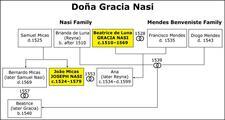Jewish Holidays: Yom Kippur

Sarah Bas Tovim

Conversas
After the establishment of the Inquisition in 1478, observance of crypto-Judaism became dangerous and more difficult. Women were at the center of Judaizing efforts, since the home was the only remaining institution in which one could observe Jewish law. Crypto-Jewish women most frequently observed the Sabbath and dietary laws.

Festivals and Holy Days
According to halakhah, women are responsible for obeying all of Judaism’s negative commandments and for observing most of the positive ones, including the Sabbath and all of the festivals and holy days of the Jewish year. In some instances, however, male and female obligations on these days differ.


